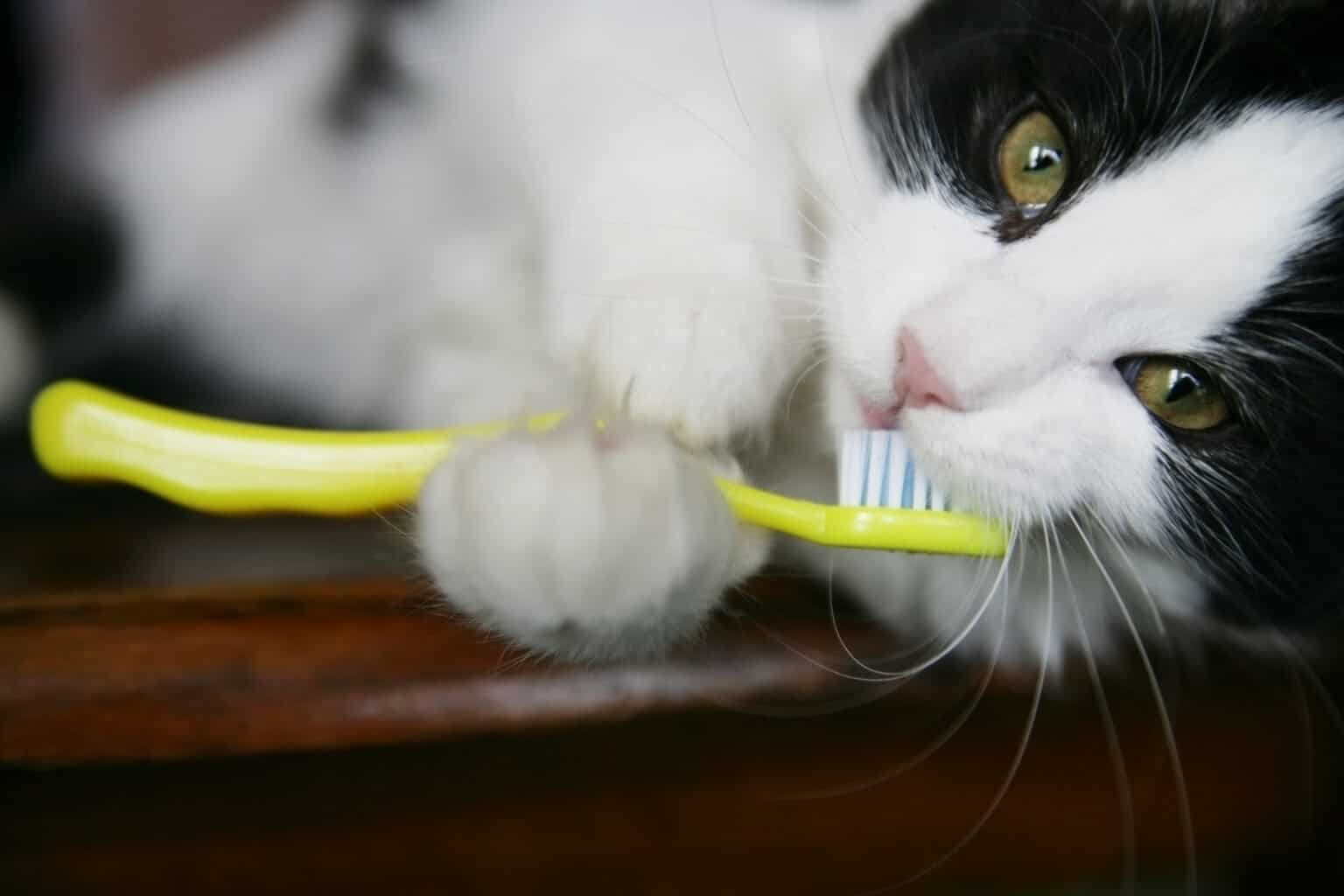Beyond Bad Pet Breath: Why Dental Care Matters
 You’ve just plopped down on the couch at day’s end, set to snuggle up with your fur friend, when – phew! What is that smell? Oh no… the bad breath is coming from the slobberingly happy dog or cat before you.
You’ve just plopped down on the couch at day’s end, set to snuggle up with your fur friend, when – phew! What is that smell? Oh no… the bad breath is coming from the slobberingly happy dog or cat before you.
Bad pet breath is not so unusual, and yet it can signal the onset of dental disease.
Unfortunately, many pet owners assume bad breath (halitosis) is simply par for the course with pets. This assumption, however, can mean serious health problems and pain for a pet with untreated dental conditions.
Pet Dental Disease, the Silent Threat
Periodontal disease, of dental disease, is the most common condition diagnosed in pets over 3 years of age. And, as in humans, the disease develops when plaque and tartar are allowed to build, causing gum inflammation, tooth discoloration, and eventually, periodontal disease.
These conditions may seem like they would only impact the gum and teeth; however, aside from the pain and compromise to the oral cavity, the disease creates infections that harm organs, such as the heart and kidneys.
Pets with untreated dental disease, in fact, often lose 1-3 years off of total lifespan, which is, sadly, a significant percentage of a pet’s life.
Along with conditions such as heart, liver, and kidney diseases, ongoing dental disease causes serious pain, which results in weight loss and decreased quality of life. Yet, many pet owners are not aware that this is a preventable disease.
Bad Breath and Other Symptoms
One of the problems with the early detection of dental conditions lies with its ambiguity. Without a dental exam performed by a veterinarian, many pets will experience the unfortunate progression of dental disease and complications because symptoms are often few or unnoticeable.
In fact, one of the most common signs something is wrong is bad breath, but it’s often chalked up to “just doggy/kitty breath”, rather than a sign of something more serious.
When other symptoms (and, usually these occur with worsening dental health) do appear, they are often:
- Mouth discomfort (pawing at mouth, unable to chew, etc.)
- Inflammation or redness of the gums
- Tooth discoloration
- Broken or loose teeth
- Drooling
At-Home and Veterinary Preventive Care
Considering the elusiveness of dental issues when it comes to a fur friend, vigilance and preventative care are paramount to keeping your pet healthy.
One of the primary ways you can contribute to your pet’s longevity and wellbeing is through annual wellness exams, which include a thorough examination of oral health. It is here you can best gauge any abnormalities that may occur to the teeth and gums.
Additionally, your veterinarian can utilize diagnostic advantages, like digital x-rays to determine what’s happening below the gum line, as well as dental cleanings – the best way to prevent plaque and tartar from progressing into dental disease.
Other ways to ensure excellent oral hygiene and health include brushing your pet’s teeth regularly and offering him or her a dental chew each week (inquire with your friend’s at BeeVet for recommendations on these, as well as tips for effective tooth brushing).
Keeping your pet’s smile sparkling and overall health the best it can be is our goal. Thankfully, prevention goes a long way in this.
BeeVet Animal Hospital offers dental care and teeth cleanings for your pet.
